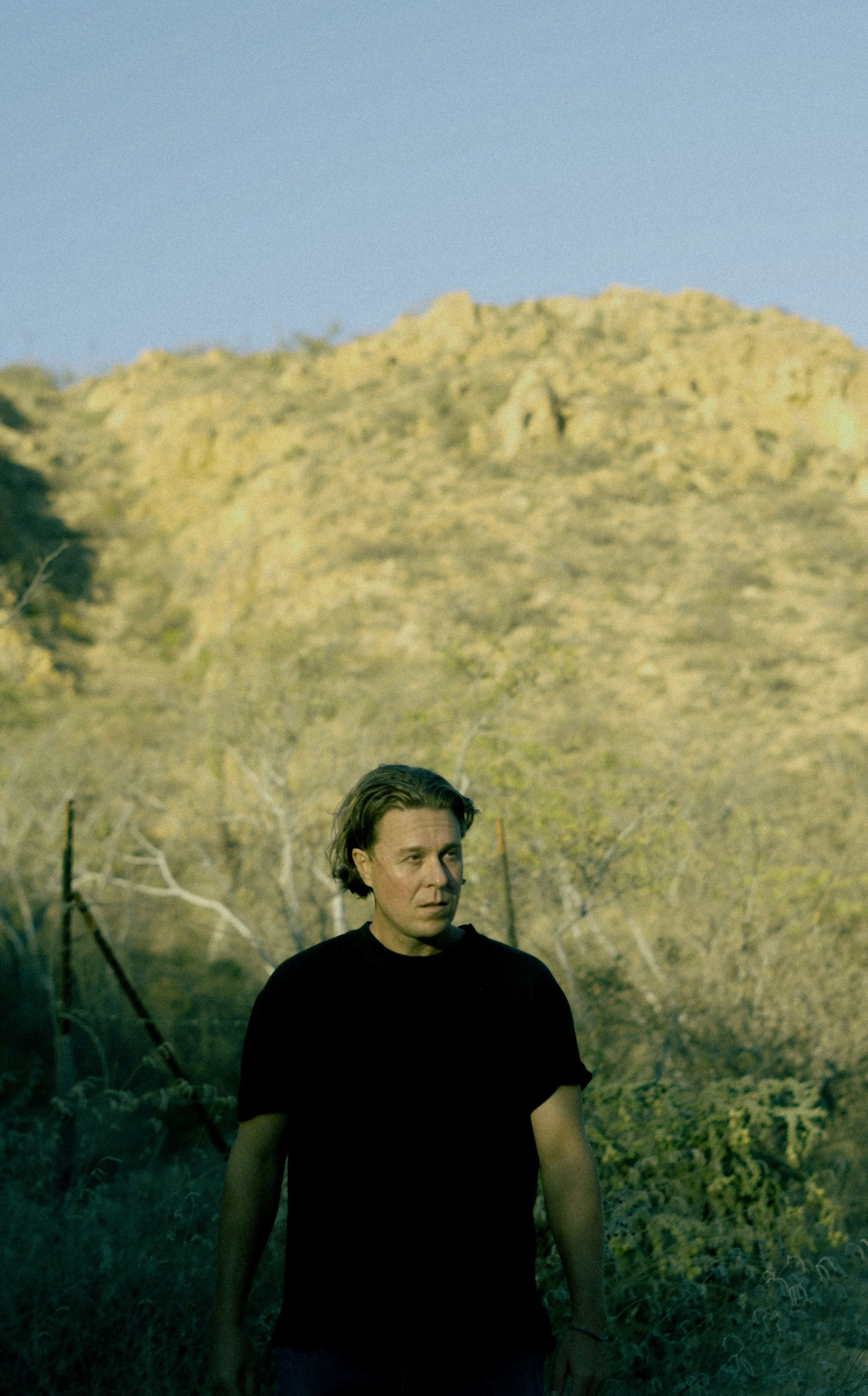Start Listening To: The Franklin Electric
The Montreal singer-songwriter reflects on personal growth, emotional surrender, and the journey behind his latest album, Victory Songs.
Over the past decade, Montreal’s The Franklin Electric has quietly carved out a space for introspective songwriting that straddles indie folk, poetic self-reflection, and cinematic scale. At the heart of the project is singer-songwriter Jon Matte, whose new album Victory Songs finds him taking stock of past struggles, personal growth, and the push-and-pull between letting go and holding on. Written across continents and shaped in his home studio, the record feels both intimate and expansive, folding in themes of healing, surrender, and quiet resilience.
As part of this year’s Quebec Spring showcase in the UK, The Franklin Electric spoke to us about the journey behind Victory Songs, the lessons learned along the way, and what British audiences can expect from his live shows.
For those unfamiliar with your music, can you tell us who you are, where you’re from, and about the music you make?
I’m a singer-songwriter from Montreal, Canada, and I started this project that’s been evolving over the past 10 years. I tend to write emotional and honest indie folk music that explores the good old human experience: growing, evolving, changing, and healing. Most of the music comes from a very personal place of self-reflection and the bittersweet poetic ironies of life.
Your new album Victory Songs feels like the culmination of a long journey. How does it differ emotionally and thematically from Oh Brother?
You kinda nailed it! This album comes full circle and feels like it represents me the most of all the records I’ve done in the past. It’s like a new wave or a new beginning. Oh Brother was the start of the wave, and this one carries it through.
There’s a recurring tension in the lyrics between acceptance and resistance, particularly in songs like “Choices” and “Victory Song.” Were you writing from a place of personal resolution or ongoing conflict?
Yes, I guess so. That duality has inspired me in many ways and in my music. I think it’s also the ridiculous game of winning and losing at life that eventually got tiring, and I had to let go.
This record spans moments of quiet reflection and more propulsive, driving energy. How intentional was the pacing from Side A to Side B?
I did sit with the songs and put them into groups that I felt belonged together. So I gave it some thought, but it also came together quite naturally and just felt right.
A lot of your music feels rooted in movement - geographically and emotionally. How did your solo travels across Europe influence the shape or tone of this album?
Traveling has opened me up so much. Being outside of my comfort zone has led to some very unique venues and experiences. At first, I was nervous, but I’m really proud of myself. I surprised myself by facing these fears and limits.
Sonically, Victory Songs blends indie folk with more cinematic textures. Can you talk about how your collaboration with Connor Seidel and Jonathan Anderson shaped the final sound?
Most of the vision started in my home studio. Then having Connor jump on a few tracks really lifted the production - he’s a force who helps bring things to the next level and is such a positive energy to work with. Jonathan Anderson was a surprise. He started off mixing songs but then ended up playing lap steel, piano, and more on “River Run.” That was probably the most unexpected and pleasant surprise of the record—it all came together last minute.
“Most of the Time We Are Lost” closes the album with a sense of surrender. Did you always envision that as the final track
That was actually a last-minute addition that just felt right. My friend Clay played violin on it, and it’s also a song we played a lot on tour, right in the center of the venue. People really connected with that moment, so it holds a special place - both on the record and in the live shows.
You’re performing at this year’s Quebec Spring in the UK. Can you give us a few words about Quebec Spring and what it means to be part of this year’s edition?
I’m so happy Quebec Spring selected me to be a part of this and are helping me spread my music all over the UK. I feel incredibly privileged to have this kind of support.
What are you looking forward to about performing in the UK?
t’s kind of a new territory that I’m discovering, and so far, it seems beautiful - a place I’d love to come back to and explore more.
What can British fans expect from your live shows?
I hope they feel something raw and authentic. As I always say during the show: it’s not YouTube - it’s real life. I truly love to connect with humans and get to know them. Expect a lot of these new songs and a few others!
What do you love right now?
Surfing.
What do you hate right now?
Politics in America.
Name an album you’re still listening to from when you were younger and why it’s still important to you.
I Forget Where We Were by Ben Howard. It’s still incredibly important to me.
Looking back at everything that’s led up to Victory Songs, what’s something you’ve learned about yourself that you didn’t know ten years ago?
Ohhhh, so much. I’ve learned to trust myself and take my own healing seriously. A lot of people are struggling and under pressure. I’ve been reconnecting with my inner child and learning to trust more. That’s so important. You don’t need to be so performative in life. Sometimes even problems or loss can arrive like a warning song—with a beautiful lesson or change around the corner. You just need to trust it and let it reveal itself.



